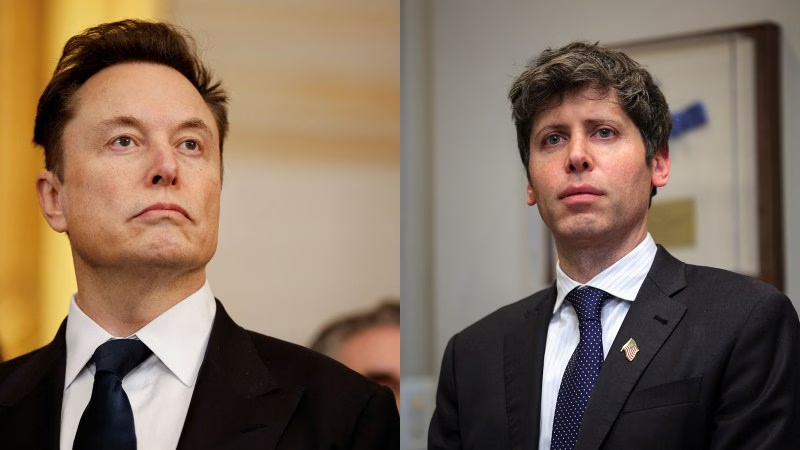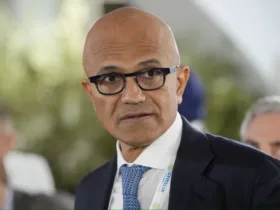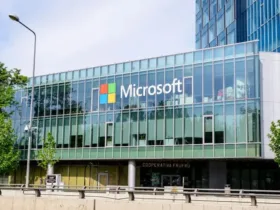On January 21, 2025, President Donald Trump unveiled an ambitious initiative titled “Stargate”, a $500 billion project aimed at revolutionizing artificial intelligence (AI) infrastructure in the United States. This initiative, in collaboration with prominent tech and financial entities like OpenAI, Oracle, SoftBank, and the Abu Dhabi state AI fund MGX, promises to establish advanced data centers and bolster AI innovation on a national scale. However, the announcement has sparked a public spat between two of the AI sector’s most influential figures: Elon Musk, CEO of xAI, and Sam Altman, CEO of OpenAI.
The Stargate Project Overview
The Stargate project is envisioned as a massive investment into the future of AI, designed to strengthen America’s position as a global leader in technological innovation. The project’s first phase involves an initial $100 billion investment, spearheaded by contributions from OpenAI, Oracle, SoftBank, and Abu Dhabi’s MGX fund. The plan includes the construction of ten state-of-the-art data centers in Abilene, Texas, powered entirely by renewable energy sources. Over the next decade, Stargate is expected to expand across other states, ultimately creating over 100,000 jobs.
Larry Ellison, Oracle’s co-founder, and Masayoshi Son, CEO of SoftBank, play pivotal roles in this initiative, with Son serving as the project’s chairman. These leaders emphasize that Stargate is not merely a technological endeavor but a transformative initiative aimed at reshaping the nation’s economic and digital landscape. The project’s backers argue that it will enhance America’s competitive edge in the rapidly evolving AI sector and pave the way for innovations that could benefit numerous industries, from healthcare to national security.
Musk vs. Altman: A Public Clash
The unveiling of Stargate has reignited tensions between Elon Musk and Sam Altman, two influential figures with a shared history in AI development but divergent visions for its future. Musk, a former co-founder of OpenAI, departed the organization in 2018 following disagreements over its direction and governance. Since then, Musk has been openly critical of OpenAI, particularly its partnership with Microsoft and its transition from a non-profit to a for-profit entity.
In response to the Stargate announcement, Musk publicly questioned the feasibility of the project, particularly its financial backing. He claimed that SoftBank had secured less than $10 billion for the venture, casting doubt on the ambitious $500 billion figure. Musk’s skepticism was echoed in a series of posts on social media, where he criticized the initiative as overly optimistic and potentially misguided.
Sam Altman, in turn, dismissed Musk’s remarks as baseless. In a pointed reply, Altman invited Musk to visit the construction site in Texas, emphasizing the tangible progress being made on the project. Altman also highlighted the significance of Stargate for the country, framing it as a patriotic endeavor that transcends individual rivalries. He argued that Musk’s critiques were rooted in personal grievances rather than genuine concerns about the project’s viability.
The Broader Context of Their Rivalry
The Musk-Altman rivalry dates back to their time at OpenAI, where Musk’s vision for AI safety and transparency often clashed with Altman’s more pragmatic approach to scaling the organization. Musk’s departure from OpenAI marked the beginning of a long-standing feud, characterized by public disagreements over AI ethics, governance, and strategy.
Musk’s criticism of OpenAI has grown sharper in recent years, particularly as the organization deepened its collaboration with Microsoft. Musk has expressed concerns about the concentration of AI power within a few large corporations, warning that this trend could stifle innovation and pose risks to global stability. In contrast, Altman has defended OpenAI’s partnerships as necessary to fund its ambitious research agenda and compete with other major players in the AI field.
The Stargate project has become a new battleground for these competing visions. Musk’s skepticism reflects his broader concerns about the centralization of AI development, while Altman’s defense of Stargate underscores his belief in the transformative potential of large-scale public-private partnerships.
The Implications of Stargate
The Stargate project represents a significant milestone in the U.S. government’s approach to AI development. With its unprecedented scale and scope, the initiative aims to address critical challenges in AI research, including data processing, energy efficiency, and workforce development. By building advanced data centers powered by renewable energy, Stargate seeks to reduce the environmental impact of AI technologies while fostering sustainable growth.
Economically, the project is poised to create tens of thousands of jobs, revitalizing local economies and providing new opportunities for skilled workers. The initiative’s focus on renewable energy also aligns with broader efforts to transition to a greener economy, positioning the U.S. as a leader in both AI and environmental sustainability.
However, the project is not without its critics. Some analysts have questioned the feasibility of raising $500 billion, particularly given the high levels of private sector involvement. Others have expressed concerns about the potential for over-centralization and the risks associated with concentrating so much power and resources in a single initiative.
The Future of AI Development
As the Stargate project moves forward, it highlights the growing importance of AI in shaping the global economy and geopolitical landscape. The U.S. government’s commitment to such a massive investment underscores the strategic significance of AI as a driver of innovation and national security.
At the same time, the public feud between Musk and Altman serves as a reminder of the challenges and controversies that accompany transformative technological initiatives. Their rivalry reflects deeper tensions within the AI community, where debates over ethics, governance, and resource allocation continue to shape the field’s trajectory.
For Musk, the Stargate project represents a missed opportunity to pursue a more decentralized and open approach to AI development. For Altman, it is a bold step toward realizing the full potential of AI as a force for economic and social progress. Despite their differences, both leaders agree on the importance of advancing AI in ways that benefit humanity as a whole.
Conclusion
The Stargate project marks a turning point in the U.S. government’s approach to AI, combining public and private resources on an unprecedented scale. While its success is far from guaranteed, the initiative has already sparked important conversations about the future of AI development and the role of visionary leadership in shaping this critical field.
As Musk and Altman continue to clash over the project’s merits, their rivalry highlights the stakes involved in advancing AI technology. Whether Stargate ultimately succeeds or falters, it represents a bold experiment in harnessing the power of AI to address some of the most pressing challenges of our time. The world will be watching closely as this ambitious initiative unfolds, with implications that extend far beyond the U.S. borders.








